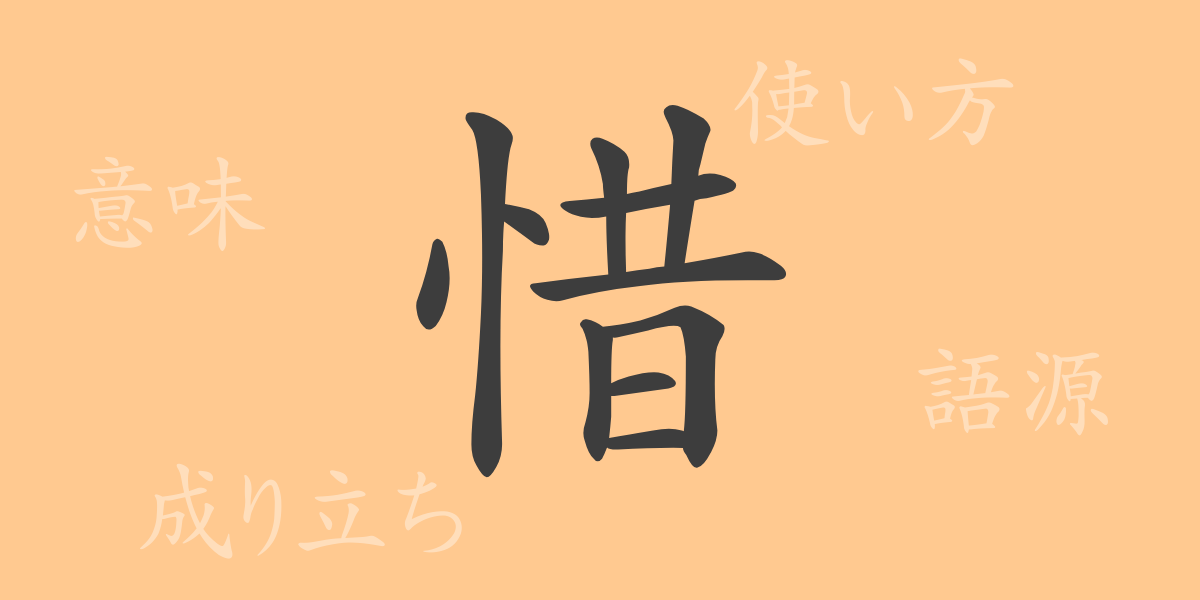Japanese characters, each with profound meanings and beauty, are integral to the language’s expression. The kanji ‘惜’ (セキ) is particularly used to convey subtle nuances of emotions and situations. This article delves into the origins, contemporary usage, and the phrases and proverbs associated with ‘惜’, inviting us to explore the depths of this character and appreciate the complexity of the Japanese language.
Origins of 惜
The kanji ‘惜’ traces back to ancient China and evolved from pictographs. Initially composed of the heart symbol ‘心’ and the phonetic component ‘昔’ (セキ), it symbolized cherishing time and valuing things, reflecting a sentiment of regret over the passing of time or the handling of matters with care. This background has led ‘惜’ to be used to express the feeling of cherishing something.
Meaning and Usage of 惜
‘惜’ is used to express feelings like ‘regrettable’, ‘feel sorry for’, and ‘to cherish’. It is often applied when discussing emotions related to the loss of time, opportunities, or material things, for example, ‘to cherish time’ (時間を惜しむ) or ‘to cherish youth’ (若さを惜しむ). It is also used to show appreciation or respect for someone’s efforts, as in ‘not sparing one’s efforts’ (彼の努力を惜しまない).
Readings, Stroke Count, and Radical of 惜
The kanji ‘惜’ has distinctive features in its form and pronunciation:
- Readings: On’yomi ‘セキ’, Kun’yomi ‘おし.む’, ‘お.しい’
- Stroke Count: 11 strokes
- Radical: Heart (心 or 忄)
Phrases and Proverbs Using 惜
Numerous idioms and proverbs incorporate ‘惜’. For example, ‘惜別’ (せきべつ ‐ parting regret), ‘惜春’ (せきしゅん ‐ cherishing the end of spring), and ‘惜敗’ (せきはい ‐ regretting a defeat). A relevant proverb is ‘惜しむことは買うより難し'(おしむことはかうよりかたし), which means that cherishing something is more difficult than acquiring it, teaching us about the challenges of truly valuing what we have.
Conclusion on 惜
The kanji ‘惜’ is used to express attachment, gratitude, and respect for things that are lost. Words containing ‘惜’ in Japanese aptly convey the intricacies of emotions, reflecting the sensitivity of the Japanese psyche. Through this article, we have gained insights into the profound meanings and cultural significance embedded in just one character, enhancing our appreciation of the richness of the Japanese language.

























